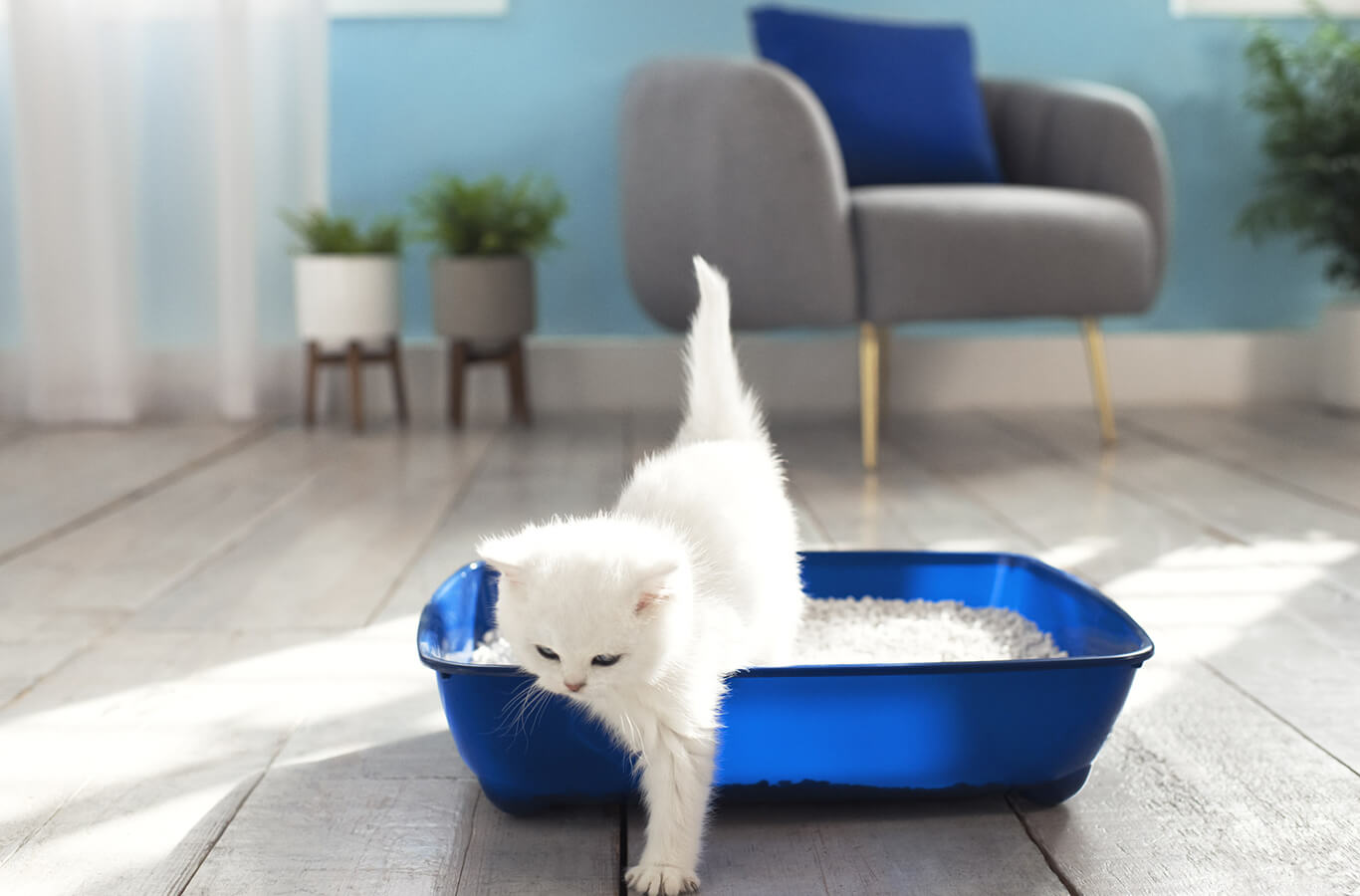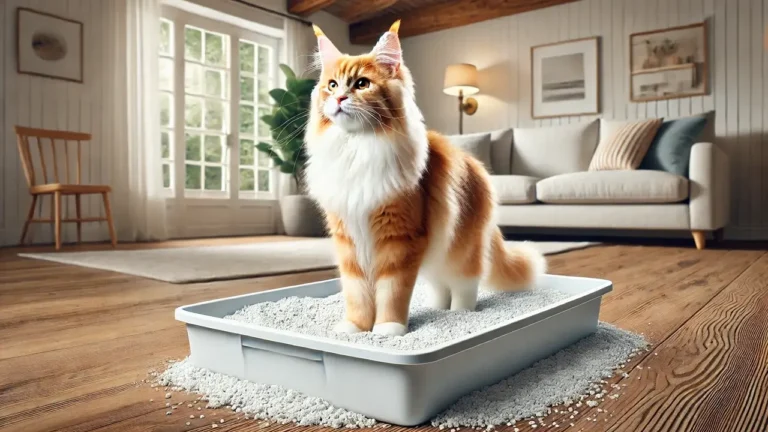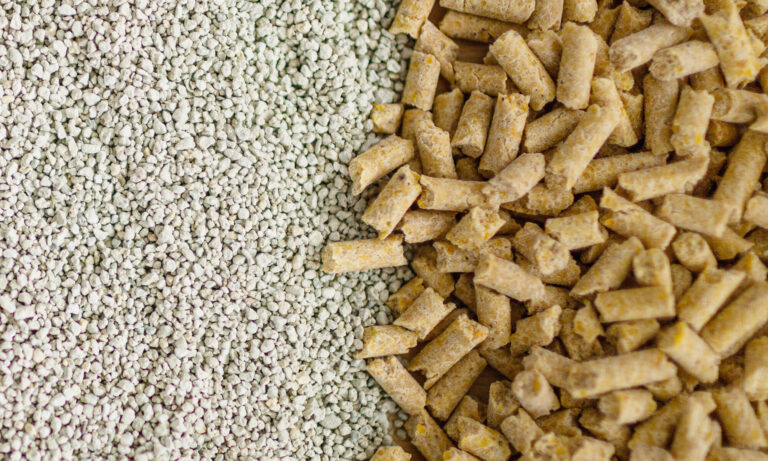Every cat owner knows that one of the most challenging aspects of having a feline companion is managing the litter box. Even with diligent cleaning, some litter boxes can still emit unpleasant odors that permeate your living space. If you’ve tried all the traditional methods and still find yourself holding your nose every time you walk past the litter box, it might be time to try some clever hacks. In this article, we’ll explore five effective cat litter hacks designed to keep even the smelliest litter boxes under control, ensuring your home remains fresh and odor-free.
Dealing with a smelly litter box can be a daunting task, but with the right hacks, it’s possible to keep odors under control and maintain a fresh-smelling home. By using baking soda, selecting the right litter, incorporating activated charcoal, sticking to a regular cleaning schedule, and employing deodorizers and air purifiers, you can tackle even the smelliest litter boxes with confidence.
Remember that each cat is different, and what works for one may not work for another. It may take some trial and error to find the best combination of hacks for your specific situation. However, with persistence and the right approach, you’ll be well on your way to a cleaner, fresher, and more pleasant living environment for both you and your feline friend.
Whether you have one cat or several, these simple yet effective hacks can make a world of difference in managing litter box odors. By keeping the litter box clean and fresh, you’ll ensure your cat remains happy and healthy, while also maintaining a comfortable and odor-free home.

1. Use Baking Soda to Neutralize Odors
Baking soda is a classic and effective solution for combating odors in various household applications, and it works wonders in the litter box too. Here’s how you can use it to keep the smell at bay:
- Sprinkle It Directly: Before adding fresh litter to the box, sprinkle a thin layer of baking soda on the bottom. This will help to absorb any odors that may seep through the litter. You can also sprinkle a small amount on top of the litter after each cleaning for ongoing odor control.
- Mix with Litter: Another method is to mix a small amount of baking soda directly into the litter itself. This helps to neutralize the ammonia in cat urine, which is often the main culprit behind strong odors.
- Odor-Controlling Products: If you prefer a ready-made solution, consider using cat litters that already contain baking soda or other odor-neutralizing agents. These products are specifically formulated to control smells more effectively than standard litters.
Baking soda is non-toxic, safe for cats, and one of the most affordable solutions available. Just be mindful not to use too much, as some cats might be sensitive to changes in their litter’s texture.

2. Consider a High-Quality, Clumping Litter
The type of litter you use can make a significant difference in managing odors. Not all cat litters are created equal, and choosing the right one can drastically reduce unpleasant smells.
- Opt for Clumping Litter: High-quality clumping litters are designed to form solid clumps when they come into contact with moisture, making it easier to remove both urine and feces from the box. This prevents waste from breaking down and releasing odors into the air. Regular removal of clumps can keep the litter box much fresher.
- Try Silica Gel Crystals: Silica gel crystal litters are another excellent option for odor control. These crystals absorb moisture and trap odors more effectively than traditional clay-based litters. They also tend to last longer, requiring fewer changes and less maintenance.
- Scented vs. Unscented: While scented litters may seem like a good idea, some cats are sensitive to strong fragrances and may avoid the litter box if they find the smell too overpowering. Unscented litters are often a safer bet, and when combined with baking soda or other odor-neutralizers, they can be just as effective at controlling smells.
When selecting a litter, consider your cat’s preferences and any potential allergies. The right litter should not only control odors but also be comfortable for your cat to use.
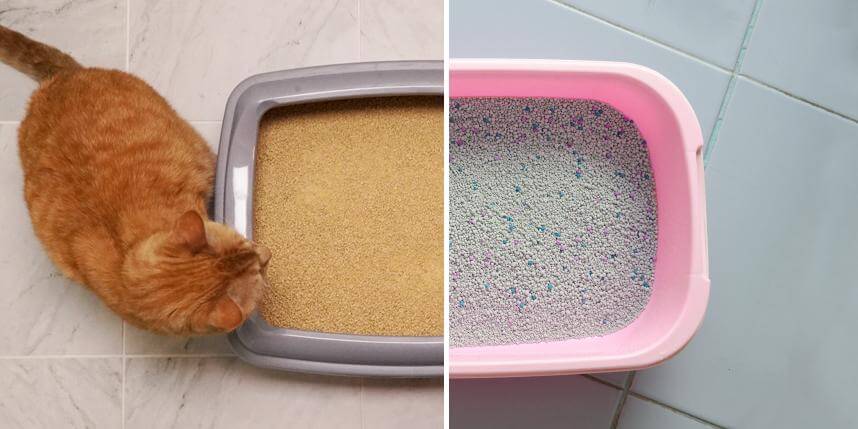
3. Add Activated Charcoal to the Litter Box
Activated charcoal is another powerful tool in the fight against litter box odors. It works by trapping and neutralizing odor-causing molecules, making it an excellent addition to your odor-control arsenal.
- Charcoal Filters: Many modern litter boxes come equipped with charcoal filters that can be replaced as needed. These filters help to absorb and trap odors before they escape into your home. If your litter box doesn’t have a built-in filter, you can purchase standalone charcoal inserts or pads and place them near the box.
- Charcoal Granules: You can also add a small amount of activated charcoal granules directly into the litter. These granules are highly porous and will absorb odors without affecting the litter’s texture. Just be sure to use food-grade or pet-safe charcoal to avoid any potential harm to your cat.
- DIY Charcoal Sachets: Another option is to create small sachets of activated charcoal and place them in the area around the litter box. These sachets will help to neutralize any lingering odors in the room. You can make these by filling small cloth bags with activated charcoal and tying them securely.
Activated charcoal is non-toxic, effective, and widely available, making it an easy and practical solution for odor control.
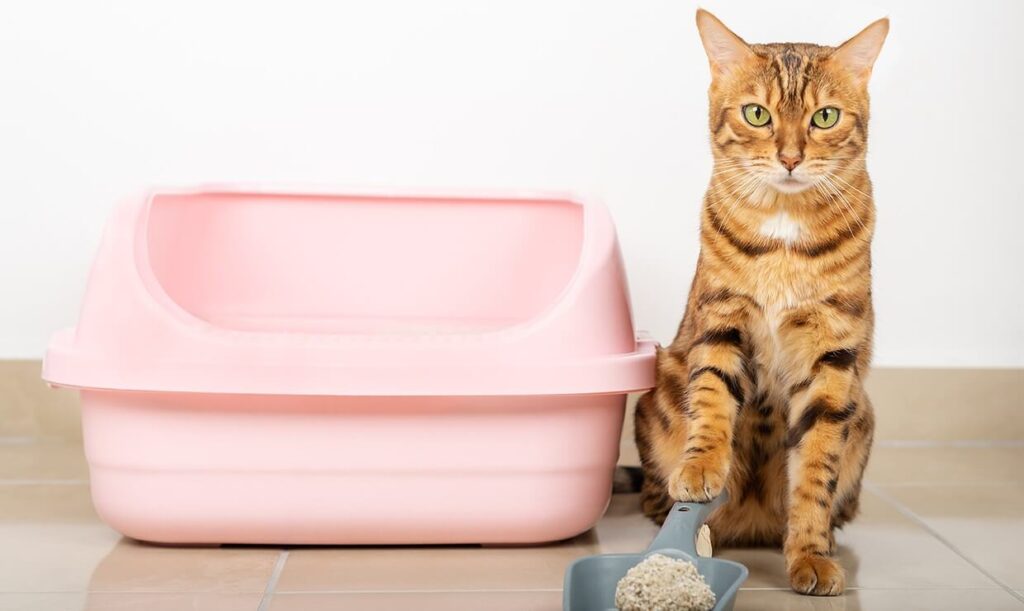
4. Maintain a Regular Cleaning Schedule
Even with the best odor-control products and hacks, nothing beats a consistent cleaning routine. Keeping the litter box clean is crucial for minimizing smells and ensuring your cat’s comfort and health.
- Scoop Daily: Make it a habit to scoop the litter box at least once a day, removing any clumps of urine and feces. This prevents waste from sitting in the box and breaking down, which is when odors become most noticeable.
- Change Litter Weekly: Depending on the type of litter you use, it’s essential to completely change the litter once a week or as needed. If you use a non-clumping litter, you may need to change it more frequently. When changing the litter, be sure to wash the box thoroughly with soap and water to remove any lingering residue and bacteria.
- Deep Clean Monthly: In addition to regular scooping and litter changes, it’s a good idea to deep clean the litter box once a month. This involves scrubbing the box with a mild detergent, rinsing it thoroughly, and allowing it to dry completely before adding fresh litter. A clean box is less likely to harbor bacteria and odors.
By maintaining a regular cleaning schedule, you’ll significantly reduce the likelihood of unpleasant odors developing in the first place.
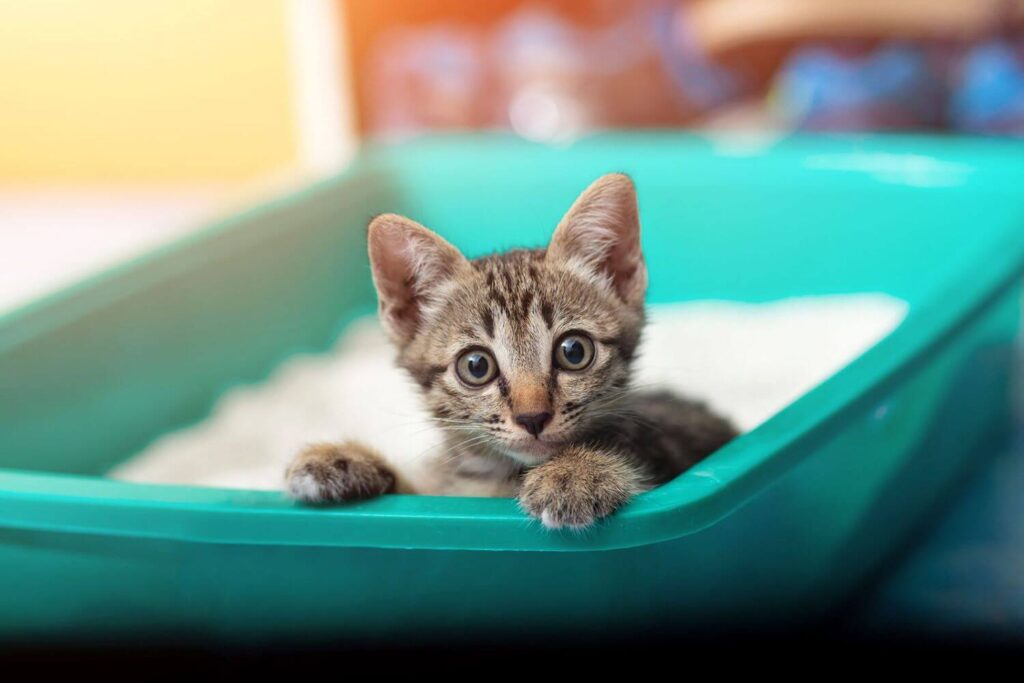
5. Use Litter Box Deodorizers and Air Purifiers
For an added layer of protection against odors, consider using litter box deodorizers and air purifiers. These tools can help to keep the air in your home fresh and clean, even with multiple cats.
- Litter Box Deodorizers: These products are specifically designed to combat litter box odors and are available in various forms, including powders, sprays, and granules. Some deodorizers are added directly to the litter, while others are sprayed in the air around the box. Choose a deodorizer that is safe for cats and free of harsh chemicals.
- Air Purifiers: An air purifier can be a game-changer for households with strong litter box odors. These devices filter the air, removing particles and odors, and can make a noticeable difference in the overall freshness of your home. Look for air purifiers with HEPA filters and activated carbon filters for maximum effectiveness.
- Natural Deodorizers: If you prefer a more natural approach, consider using houseplants known for their air-purifying qualities, such as spider plants or bamboo palms. Just ensure the plants are non-toxic to cats. You can also place bowls of vinegar or baking soda near the litter box to absorb odors naturally.
Combining these deodorizers with other odor-control methods can help create a more pleasant environment for both you and your cat.


